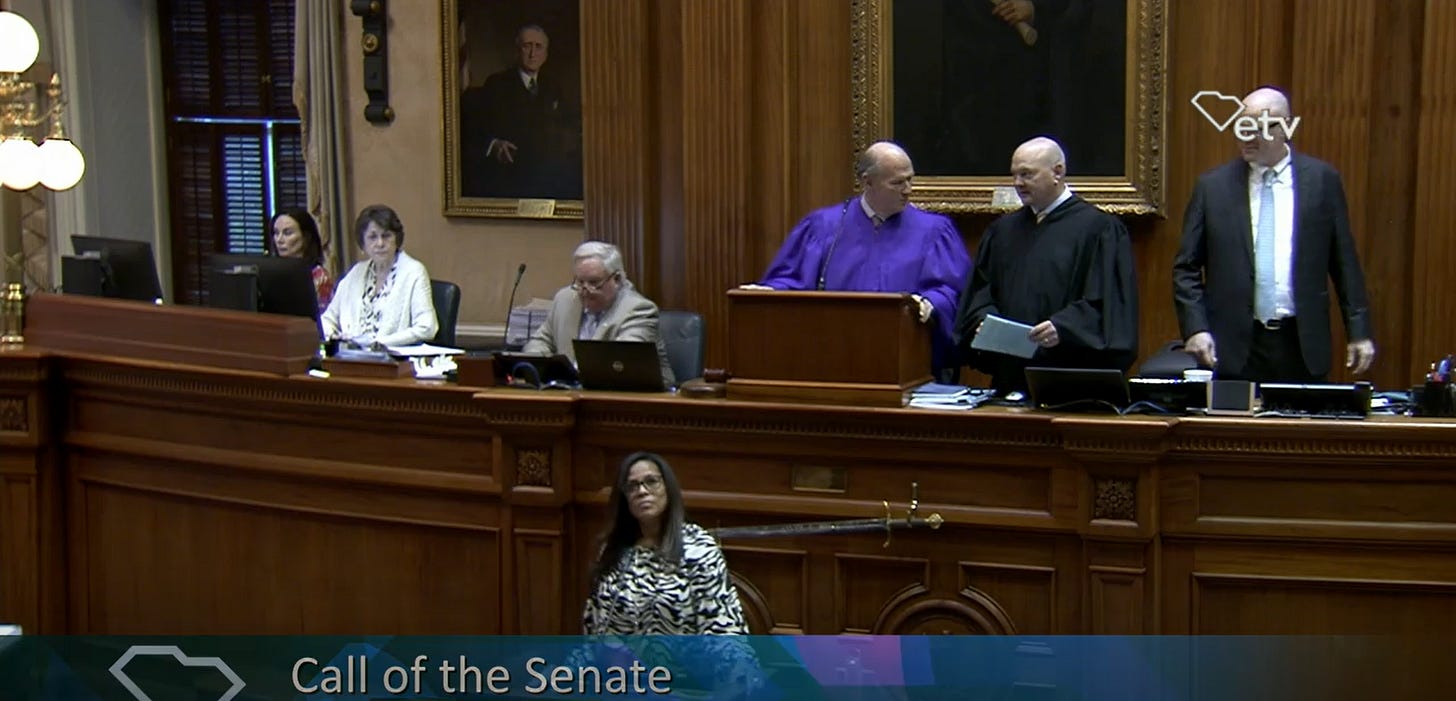On May 10, 1740, the South Carolina Assembly enacted the “Bill for the better ordering and governing of Negroes and other slaves in this province,” also known as the Negro Act of 1740. The law prohibited enslaved African people from growing their own food, learning to read, moving freely, assembling in groups, and earning money. It also authorized white enslavers to whip and kill enslaved Africans for being "rebellious."
-Equal Justice Initiative (emphasis mine)
For the past two nights, I have driven over to the grounds of the South Carolina State House in Columbia, SC, after school. I have ascended the comically narrow stairs to access the Senate gallery and sat watching as Senators passionately take the well, in front of the ceremonial sword1, often as other Senators giggle and stage whisper directly behind them. Last night, watching Senator Mia McLeod defending the inherent rights of her children to learn about the history of their family and state2, I was struck by how sadly fitting it was that above her, behind the Senate President’s podium, Senate President Thomas Alexander and Majority Leader Shane Massey were talking loudly enough for us to hear them in the gallery without amplification, oblivious to what she was saying as Massey presumably bided his time until he could invoke cloture and shut down the proceedings, which he would do within a few hours.
Later, as another Senator spoke, Massey made a show of retrieving a large box of chips and crackers and passing bags out to anyone who would take them on the Senate floor. The pomp and circumstance of the sword and the stern portraits of historical members of the Senate were absurdly juxtaposed with the humdrum reality of the wheelings and dealings that make up the actual life of the Senate.

During a historic teacher shortage, the SC Senate, like the House, has decided to prioritize school censorship that specifically targets diversity and inclusion efforts. South Carolina' House Bill 3728 passed the Senate last night. Fittingly, teacher contracts, in accordance with state law, were due at midnight. Yesterday was also, by law, Confederate Memorial Day, and, as Senator Darrell Jackson pointed out, the anniversary of the passage of South Carolina’s Negro Acts, a series of restrictions on Black people that were a response to the Stono Rebellion of the previous year.
Keep reading with a 7-day free trial
Subscribe to Other Duties (as assigned) to keep reading this post and get 7 days of free access to the full post archives.



